- AdventHealth

With increasing knowledge about COVID-19 have come advancements in care that are changing the way people recover from the virus – and helping curb its spread. At the onset of the pandemic, the two options for recovery involved either a hospital stay or total isolation at home, leaving many with nothing in between.
To help relieve this pain point for consumers, AdventHealth began to offer at-home patient monitoring that provides for peace of mind and the safety of a care team, along with the comfort of staying in one’s own home, filling a potentially dangerous gap in coronavirus care.
After assessing patients’ conditions, AdventHealth is able to provide them with an oximeter, thermometer and app that keeps them connected with a nurse who can monitor their biometrics and help guide them through their COVID-19 recovery safely.

“This technology is a significant step in AdventHealth’s consumer-focused transformation that aims to extend clinical care beyond the walls of its hospitals,” said Reetu Singh, MD, senior medical director of clinical documentation integrity for AdventHealth, who was responsible for developing the clinical protocols and overseeing the rollout. “Patients are kept connected with their 24/7 care team who can intervene before a health episode occurs. The information and insights gained from this monitoring can also be extremely helpful in the event that the patient needs more acute care.”
While the benefit to the patient is clear, such as improved outcomes and reduced need for hospital readmission, the technology also helps health care professionals and the community.

“By safely monitoring lower-severity COVID-19-positive patients or persons under investigation (PUI) from their homes, health care workers can focus their efforts on higher acuity patients in the hospital, reduce their exposure to the virus, preserve personal protective equipment and ensure enough hospital beds are available to those in the community who need them,” Dr. Singh said.
Mary Pinkerton, senior manager of clinical support and patient safety for AdventHealth, led the implementation and deployment of the remote monitoring nursing teams, assembling a team who could provide both clinical and emotional support remotely to patients recovering at home.
“At a time when the world was living in such anxiety and unknown, we knew there was a need that we could uniquely meet to help keep people safe and ease their mind using the latest in connected care technology,” Pinkerton said. “We could hear in our patients’ voices that they needed emotional support at times through their recovery as well. Our remote monitoring nurses were there for their patients however they were needed, whether it be an encouraging message to lift their spirits, joining in prayer or even singing happy birthday to those alone on their special day.”
So far, over 8,000 patients have used at-home monitoring to safely recover from COVID-19 at home with the care of an AdventHealth nurse. As the pandemic introduces new challenges and opportunities to provide individualized care, the health system plans to continue implementing more consumer-centric offerings that meet patients where they’re at, even at home.
Recent News
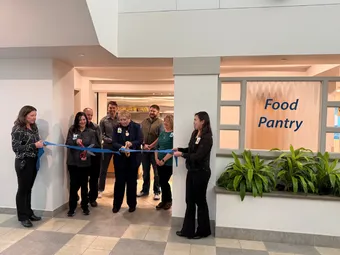
AdventHealth Avista opens food pantry to support community health
AdventHealth Avista has taken a significant step toward addressing food insecurity, a key priority identified in its Community Health Needs Assessment by opening a food pantry on its first floor. This...

AdventHealth Porter Earns COPPER Designation, Strengthening Pediatric Emergency Care
AdventHealth Porter is proud to announce that its Emergency Department has earned the Pediatric Advanced COPPER designation, a significant milestone that reflects a deep commitment to providing safe...

Three AdventHealth hospitals in Florida’s Volusia and Flagler counties earn top Leapfrog honors
Residents of Volusia and Flagler counties now have national confirmation of something many rely on every day: safe, high-quality hospital care close to home.
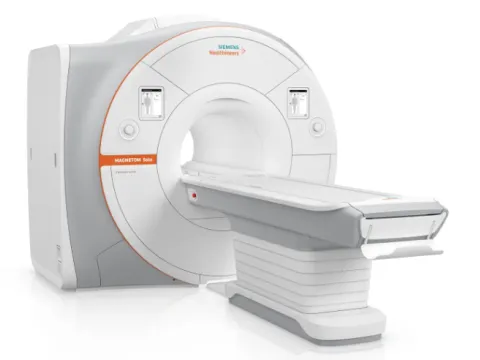
AdventHealth DeLand investing in next-generation MRI technology to enhance patient care
AdventHealth DeLand will soon install a new MRI system designed to deliver faster exams, sharper images and a more comfortable experience for patients in West Volusia.

Innovative new procedure offers hope for heart transplant candidates at high risk for rejection
Innovation at AdventHealth is driven by one purpose: helping people heal in body, mind and spirit.

The hidden cancer one clinician caught – and the process improvements she says matter most
Shana Vongkhankeo, APRN, discovered an unusual thyroid enlargement during a routine physical for a teenage patient, leading to a life-saving cancer diagnosis that highlighted how being fully present...
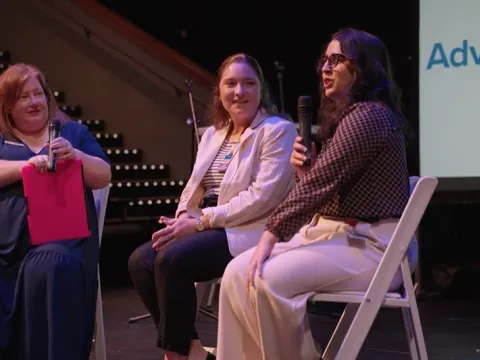
AdventHealth debuts first-of-its-kind Performer Health Program in Central Florida
AdventHealth is launching the Performer Health Program, a first-of-its-kind initiative in Central Florida focused on addressing the unique health needs of artists and performers.

How to stay mindful in body, mind and spirit this holiday season
As holiday demands grow, mindfulness provides a simple tool to stay present and steady, offering support for the mind, body and spirit during a busy season

AdventHealth Waterman strengthens access to expert specialty care with expansion of Mount Dora medical plaza
Second floor buildout adds orthopedics, sports medicine, women’s health and heart care for Lake County.
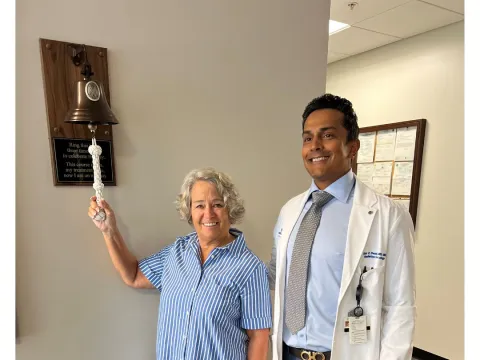
Expanding hope through innovation: AdventHealth advances cancer care across East Florida
Cancer touches nearly every family, and in Flagler, Lake and Volusia counties, the demand for timely, advanced care keeps rising. AdventHealth’s East Florida Division, which includes seven hospitals...

For two Hope Clinic patients, music spurs recovery
STROKESTRA heals stroke survivors in so many meaningful ways.
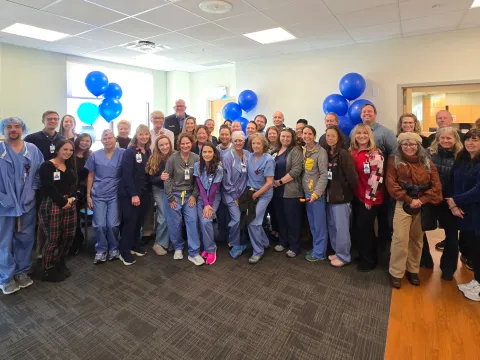
A new chapter begins: AdventHealth Avista opens its on-campus surgery center
This milestone marks a meaningful new chapter for a team whose history stretches back more than two decades.
